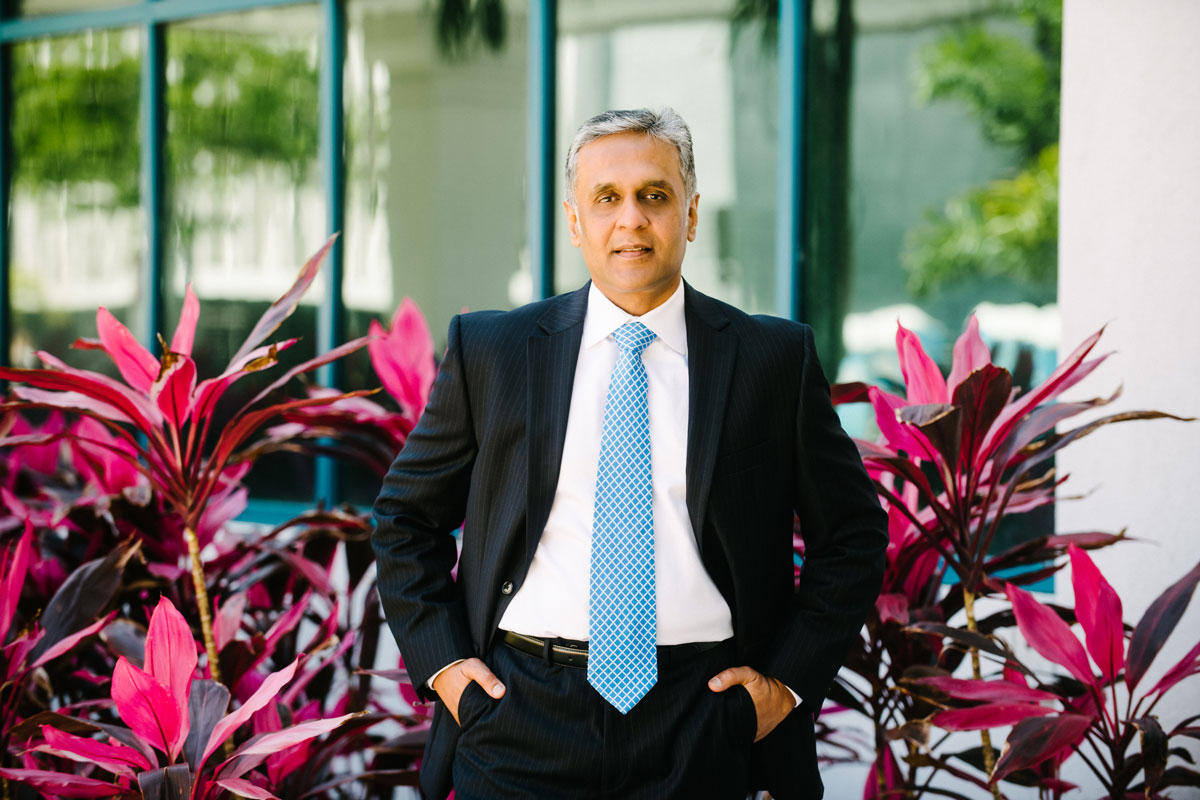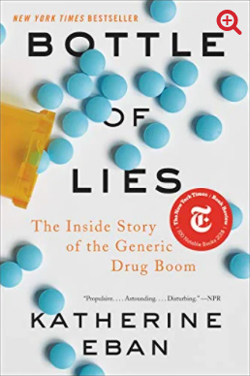
n summer 2003, Dinesh Thakur ’92G had been in his new job as director and global head of research information and portfolio management for Ranbaxy Laboratory in Guragon, India, for only a couple of months when he spotted a man, drunk and injured, laying in the middle of a busy road. Though he was on his way home from a long day at work, and though his driver urged him not to, Thakur insisted on stopping to carry the man off the road and transporting him to the nearest hospital, where his concern — and his willingness to pay for the injured man’s care, in cash, in advance of treatment — was met with suspicion. Indeed, the day after the incident, local police showed up at Thakur’s Ranbaxy office, assuming the only reason he’d helped the stranger had to be because he’d been the one who had run him over.
The incident was eye-opening for Thakur, a native of Hyderabad who had returned to India after more than a decade in the United States. It was also a small but meaningful preview of what Thakur would soon find himself up against as a corporate whistleblower, taking on not just the company he worked for but an entire culture of corruption that pervaded the Indian government.
Hired to manage research and development information for drug development, manufacturing and operations at India’s largest generic drug manufacturing company, Thakur quickly discovered an alarming truth: Ranbaxy was falsifying crucial data about a wide range of its products — particularly those sold in African and Far East markets — and violating industry standard production practices at virtually all of its manufacturing facilities. After confronting Ranbaxy management, he resigned, and began an eight-year journey working with the U.S. Food and Drug Administration to expose and document the company’s fraudulent practices.
“It took a combination of courage and stupidity to do what I did,” says Thakur, noting that the culture of India is dramatically different from that of the U.S., and he initially worked with U.S. authorities anonymously to protect his safety and that of his family. People in India have been killed for reporting wrongdoing. “But I’d do it again, absolutely. It was a problem in need of a solution, and I was in a position to provide it.”
Thakur was driven in part by the sheer malevolence of the fraud involved. Ranbaxy had provided fabricated data about the safety and efficacy of its antiretroviral drugs — used in the treatment of AIDS — to the World Health Organization (WHO) in the interest of selling these drugs to WHO-member countries, home to some of the world’s most vulnerable patients: poverty-stricken South Africans. What’s more, that practice was just the tip of the iceberg; under Thakur’s direction his team turned up evidence of similar falsification of data across the company’s global drug portfolio: medications being marketed and prescribed as pharmacological equivalents to brand name drugs that simply were not.
“I just couldn’t live with myself knowing what I knew and how it affected the poorest of the poor across the world,” he says.
Ranbaxy ultimately pleaded guilty to seven federal felonies, and Thakur, who sacrificed his job, his marriage, and life as he had known it to document the company’s wrongdoings, received a multimillion-dollar settlement. Today, he’s a public health activist focused on the global quality, safety and affordability of medications as well as the health policies of both the United States and India through his non-profit organization, Citizens for Affordable Safe and Effective Medicines India (CASEMIndia). He also directs the Thakur Foundation, a philanthropy focused on both civil liberties and public health. Last spring, when the COVID-19 pandemic broke, the Thakur Foundation helped source and purchase much-needed PPE in India, and through a network of in-country non-government organizations provided financial support to the country’s massive migrant labor workforce.
“While the last year has certainly illustrated that they are from perfect, for better or worse, U.S. systems by and large still work,” he explains. “I cannot say the same for India.”
UNH has also benefitted from Thakur’s generosity. In recent years, he’s established both the undergraduate Dinesh S. Thakur Scholarship for Bioengineering in the College of Engineering and Physical Sciences and the graduate-level Dinesh Thakur Health Analytics Scholarship. Thakur says it’s a small way of giving back to the place that played a meaningful role in his life’s journey.
“I had never left India before I came to UNH,” he says. “I took a Pan Am flight from Mumbai to Boston, and a fellow passenger who was headed to Maine offered to drop me off on campus.” Enrolled in fall 1990, just before the commercialization of the internet, Thakur had seen UNH only in the brochure that had been mailed to his home in Hyderabad. “That didn’t quite capture the experience of waking up at Babcock Hall on a snowy morning to walk to Professor Vasudevan’s 8:30 a.m. graduate chemical engineering seminar in Kingsbury Hall, however,” he notes wryly.
Thakur’s U.S. home base is in Florida, and he typically divides his time between St. Petersburg and India, though COVID has kept him from traveling for the past year. He stays abreast of developments at UNH and has nothing but praise for the students who have received his scholarships. “They’ve really done well with the opportunity,” he says. Unsurprisingly, perhaps, Thakur is particularly enthusiastic about UNH’s role in the burgeoning field of health care data analytics; his team’s deep dive into Ranbaxy’s data played a key role in bringing the company’s fraud to light. “People are just getting around to thinking about big data,” he says. “The commitment UNH has made to helping expand education in the field speaks well for the university.”
